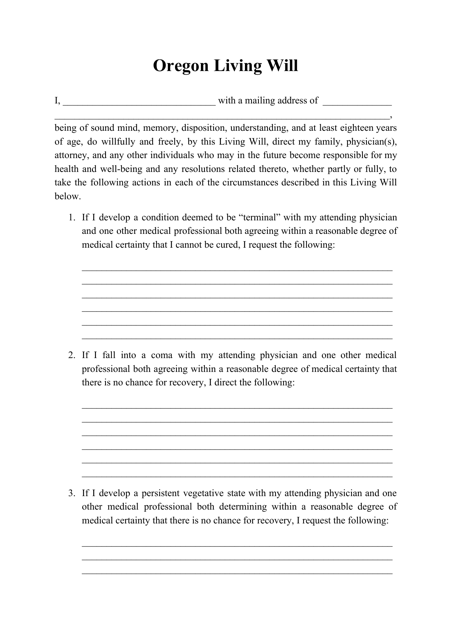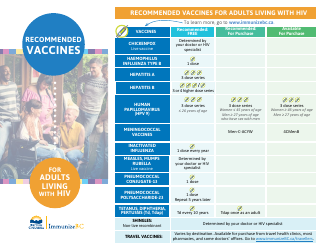Living Will Form - Oregon
An Oregon Living Will - sometimes confused with an Advance Directive - is a vital piece of paperwork that allows all patients to ensure that their wishes regarding life-sustaining medical treatment are honored by doctors and healthcare professionals working in the state of Oregon. The forms are legal tools used to assure that the patient's wishes with respect to the number and quality of medical procedures are carried out in their final days or when they are incapacitated.
Download a ready-made template by clicking the link below or make your own Living Will with our form builder .
These forms reflect the patient's' rights of consent and medical choice under conditions whereby they are no longer capable of choosing the procedures they wish to undergo for themselves. Any will is a significant legal document that should be given careful thought and discussed with the family, a physician, and care providers.
It is highly recommended that a discussion of the patient's wishes occurs before any medical treatment is necessary, since the Living Will may directly involve the patient's family or require them to assist in its implementation.
An Oregon Living Will is defined by Sections 127.505 to 127.660 and Section 127.995 . The document must be signed by two (2) witnesses.
What Is an Oregon Living Will?
A Living Will is a written, legal document that spells out the medical treatments an individual would and would not want to be used to keep them alive. The form also clarifies the preferences for other medical decisions, such as pain management or organ donation. The person for whom the will is created is called the Principal.
The document may be revoked at any time as long as the Principal still has the mental capacity to do so. The Principal may also elect a trusted individual - or agent - to make decisions on their behalf when they are no longer able to speak for themselves.
How to Make a Living Will in Oregon?
Difficult health-related situations can occur to any person at any age, so it is a good idea for all adults to have a will. Usually, a basic ready-made Living Will template should address most of the medical procedures common in life-threatening situations, such as resuscitation via electric shock, ventilation, and dialysis. An individual can choose to allow some of these procedures or none of them. They may also indicate whether they wish to donate organs and tissues after death. Even if a person refuses life-sustaining care, they can express the desire to receive pain medication throughout final hours including the related provisions in their Living Will.
When completing a will an individual may appoint an agent - or a health care proxy - to make decisions on their behalf in the event of incapacitation. No notarization is required unless otherwise specifically requested by the proxy.


















